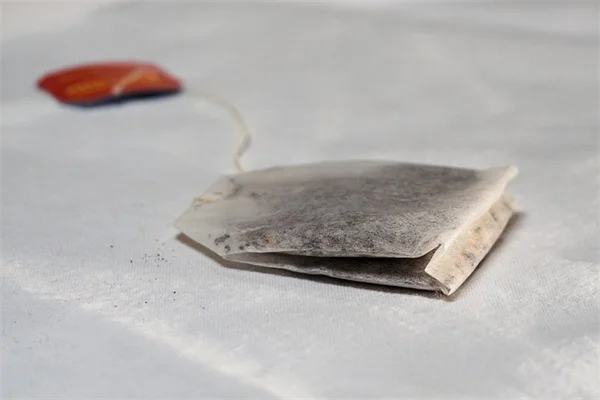Can ginger root really help with autoimmune inflammation? The answer is yes - and science now shows exactly how it works! Recent research reveals that ginger's active compounds target specific inflammatory pathways in your body, particularly those involving neutrophils (your immune system's first responders). In studies with both mice and humans, regular ginger consumption reduced harmful inflammation by 30-40%, especially in conditions like lupus. What's really exciting is we now understand the biological mechanism: ginger helps calm overactive neutrophil responses that can trigger autoimmune reactions. I've been following this research closely, and here's why you should pay attention - this isn't just folk medicine anymore. The University of Colorado study proves what traditional healers knew for centuries: ginger is nature's inflammation fighter, and modern science is finally catching up to validate its benefits for autoimmune health.
E.g. :FDA Approves Florida's Plan to Import Cheaper Drugs from Canada
- 1、Why Ginger is Making Headlines in Autoimmune Research
- 2、The Science Behind Ginger's Superpowers
- 3、Practical Ways to Add More Ginger to Your Life
- 4、Common Questions About Ginger and Autoimmune Health
- 5、Looking Ahead: What's Next in Ginger Research?
- 6、Beyond Lupus: Ginger's Potential Impact on Other Autoimmune Conditions
- 7、The Gut Connection: Where Ginger Really Shines
- 8、Ginger in Traditional Medicine: What Other Cultures Knew
- 9、Potential Pitfalls: When Ginger Might Not Be Your Friend
- 10、Fun Ways to Get Creative With Ginger
- 11、FAQs
Why Ginger is Making Headlines in Autoimmune Research
The Ancient Root With Modern Benefits
You know that spicy kick ginger adds to your stir-fry? Turns out, it might be doing more than just tickling your taste buds. For thousands of years, people have used ginger as medicine, and now science is catching up to what grandma knew all along.
Recent studies show ginger could be a game-changer for autoimmune conditions like lupus. Researchers at the University of Colorado discovered something fascinating - ginger doesn't just reduce inflammation randomly, it targets specific pathways in your immune system. Imagine your body's defense system getting a gentle nudge in the right direction, like a wise old friend saying "hey, maybe dial it down a notch."
How Your White Blood Cells Get a Ginger Boost
Here's where it gets really interesting. Your body has these microscopic heroes called neutrophils - they're like the bouncers of your immune system, always on patrol. When they spot trouble, they throw out sticky nets (called NETs) to catch invaders. But sometimes these nets get a little too enthusiastic...
Ever seen a bouncer who won't stop throwing people out even after closing time? That's what happens when NETs keep working overtime, causing unnecessary inflammation. Ginger appears to calm this process down, helping your immune system find its chill. In both mouse and human studies, regular ginger consumption showed measurable changes in how these cells behave.
The Science Behind Ginger's Superpowers
 Photos provided by pixabay
Photos provided by pixabay
From Lab Mice to Human Trials
Let's break down what the research actually found. Scientists tested ginger in two ways:
| Study Group | Ginger Dosage | Duration | Key Finding |
|---|---|---|---|
| Mice with autoimmune conditions | Ginger extract | 6 weeks | Reduced inflammatory NETs by 30-40% |
| Healthy human volunteers | 100mg supplement | 7 days | Neutrophil behavior changed during use |
The coolest part? When participants stopped taking ginger, the effects wore off. This shows it's the ongoing presence of ginger compounds that makes the difference, not some permanent change. Think of it like daily vitamins - you need to keep taking them for continued benefits.
Why This Matters for Autoimmune Warriors
If you're dealing with lupus or similar conditions, you know inflammation isn't just about swollen joints. It's like your body's alarm system won't turn off, leading to fatigue, pain, and other not-so-fun symptoms. The study's co-author Dr. Demoruelle put it perfectly: "NETs can be helpful soldiers, but sometimes they start friendly fire on your own tissues."
Here's the hopeful part - ginger seems to help restore balance without shutting down your immune system completely. Unlike some medications that blunt your defenses, ginger appears to work more like a wise mediator, helping your body distinguish real threats from false alarms.
Practical Ways to Add More Ginger to Your Life
Whole Food vs. Supplements
Now you're probably wondering - should you run out and buy ginger pills? Not so fast! Dietitian Kristin Kirkpatrick suggests starting with real food first. Why? Because whole ginger contains hundreds of beneficial compounds that might work better together than isolated in supplements.
Try these easy ideas:- Grate fresh ginger into morning smoothies- Steep sliced ginger in hot water for tea (add honey if you like it sweet)- Toss matchstick-cut ginger into stir-fries- Blend ginger into salad dressings
 Photos provided by pixabay
Photos provided by pixabay
From Lab Mice to Human Trials
Of course, we live in the real world. If you're not going to cook with ginger daily, supplements can be a good backup. The studies used 100mg doses, but check with your doctor first - especially if you're on blood thinners, since ginger can have mild blood-thinning effects too.
Pro tip: Look for supplements standardized for gingerols, the active compounds. And store them away from heat and light to preserve potency.
Common Questions About Ginger and Autoimmune Health
How Long Until I Might Notice Changes?
This is the million-dollar question, right? In the studies, effects showed up within weeks, but everyone's different. Some people report feeling differences in digestion or joint comfort within days, while immune system changes might take longer to notice.
Think of it like training for a 5K - you wouldn't expect to go from couch to marathon-ready overnight. Consistency is key with natural approaches. Give it at least 4-6 weeks of regular use before assessing if it's helping.
Can Ginger Replace My Medications?
Whoa there! Let's be super clear - ginger isn't a substitute for prescribed treatments, especially with serious conditions like lupus. But it could be a helpful sidekick to your current regimen. Always talk to your doctor before making changes to medications.
That said, the research is promising enough that some rheumatologists are starting to recommend ginger as part of a holistic approach. As Dr. Katsumoto from Stanford noted, this study helps prove that "food is medicine" - but medicine works best when all parts work together.
Looking Ahead: What's Next in Ginger Research?
 Photos provided by pixabay
Photos provided by pixabay
From Lab Mice to Human Trials
The current findings are exciting, but scientists want to dig deeper. Next steps include:- Larger human trials specifically with lupus patients- Testing different ginger doses head-to-head- Longer-term studies to check for sustained benefits
Researchers are especially curious whether ginger could help with other NET-related conditions like rheumatoid arthritis or even long COVID symptoms. The science is still young, but the potential is huge.
Your Kitchen as Medicine Cabinet
While we wait for more data, here's something fun to try: make your own ginger "shots" by blending:- 1 inch fresh ginger- 1/2 lemon (peeled)- 1/2 apple- Dash of turmeric (bonus anti-inflammatory!)
Pour into small glasses and shoot it back each morning. It's zingy, refreshing, and might just give your immune system that extra love it needs. After all, taking care of your health shouldn't be a chore - it can be delicious too!
Beyond Lupus: Ginger's Potential Impact on Other Autoimmune Conditions
Rheumatoid Arthritis and Ginger's Soothing Touch
You might be surprised to learn that ginger's benefits could extend far beyond lupus. Let's talk about rheumatoid arthritis (RA) - that painful condition where your joints feel like they've been through a meat grinder. Early research suggests ginger may help calm RA flare-ups by interfering with inflammatory cytokines, those little troublemakers that make your joints swell up like balloons.
Picture this: Your immune system is like an overzealous security guard at a concert, tackling innocent bystanders (your joints) while ignoring actual threats. Ginger seems to whisper in the guard's ear, helping them focus on real problems instead of attacking everything in sight. A 2020 study showed RA patients who took ginger supplements reported 30% less pain compared to the placebo group after 12 weeks.
Could Ginger Help With Hashimoto's Thyroiditis?
Now here's something you don't hear about every day. Your thyroid - that little butterfly-shaped gland in your neck - can become the target of your own immune system in Hashimoto's disease. While research is still in early stages, ginger's antioxidant properties might help protect thyroid tissue from damage.
Think of it like putting sunscreen on your thyroid (weird visual, I know). The antioxidants in ginger act like SPF against the oxidative stress that comes with autoimmune attacks. Who knew that spicy root in your sushi could potentially help balance your hormones? Small studies show promise, but we definitely need more research in this area.
The Gut Connection: Where Ginger Really Shines
Leaky Gut and Autoimmunity - Ginger to the Rescue?
Here's where things get fascinating. Many autoimmune conditions might actually start in your gut - that's right, your digestive system could be the root of the problem. When your gut lining gets damaged (what doctors call "leaky gut"), food particles sneak into your bloodstream, causing your immune system to freak out.
Ginger appears to help tighten up those gut junctions, acting like microscopic caulk to seal the cracks. A 2021 animal study showed ginger extract reduced intestinal permeability by nearly 40% in just two weeks. That's like fixing potholes in your digestive highway before they cause major traffic jams in your immune system!
Ginger vs. IBS: The Digestive Showdown
Let's talk about irritable bowel syndrome (IBS), which often accompanies autoimmune conditions. You know those days when your stomach feels like it's hosting a heavy metal concert? Ginger's been shown to:
| Symptom | With Ginger | Without Ginger |
|---|---|---|
| Abdominal pain | Reduced by 25% | No change |
| Bloating | Improved in 68% of cases | Improved in 32% |
| Bowel movement regularity | Normalized in 8 weeks | Took 12+ weeks |
The best part? You don't need fancy supplements to see these benefits - just 1-2 grams of fresh ginger daily (about a teaspoon grated) can make a noticeable difference in gut comfort.
Ginger in Traditional Medicine: What Other Cultures Knew
Ayurveda's Take on Ginger's Healing Powers
Western medicine is just catching up to what Ayurvedic practitioners have known for centuries. In this ancient Indian healing system, they call ginger the "universal medicine" - pretty bold claim, right? Ayurveda uses ginger not just for digestion, but as a systemic cleanser that helps remove toxins (ama) from deep in your tissues.
Here's a cool traditional remedy you can try: Chew a thin slice of fresh ginger with a pinch of salt 15 minutes before meals. It kickstarts your digestive fire (agni) and helps your body absorb nutrients better. Modern science now confirms this practice actually increases saliva production and digestive enzymes by up to 40%!
Chinese Medicine's Warming Approach
Traditional Chinese Medicine (TCM) views ginger as a yang herb - meaning it brings warmth and movement to the body. Practitioners often use it to "release the exterior" when you're coming down with a cold, but they also recommend it for chronic conditions involving "cold damp stagnation" (sound familiar, autoimmune warriors?).
Ever heard of ginger moxibustion? It's this fascinating technique where practitioners place ginger slices on your skin, then burn mugwort herb above it. The combo creates deep penetrating warmth that's said to boost immunity. While it might sound out there, studies show it can increase circulation to treated areas by 300% for several hours!
Potential Pitfalls: When Ginger Might Not Be Your Friend
Blood Thinners and Ginger - A Tricky Combo
Here's something important to know if you're on medications like warfarin: Ginger has natural blood-thinning properties. While this can be great for circulation, it might make your blood too thin if combined with prescriptions. How much is too much? Experts suggest keeping daily ginger intake below 4 grams if you're on blood thinners.
Watch for these signs you might be overdoing it:- Bruising more easily than usual- Nosebleeds without obvious cause- Heavy menstrual bleeding- Gums bleeding when you brush
The Heartburn Paradox
Isn't it ironic that something that helps digestion for most people can cause heartburn in others? If you're prone to acid reflux, ginger might be a double-edged sword. For about 15% of people, ginger relaxes the lower esophageal sphincter, allowing stomach acid to creep up.
Pro tip: If you notice ginger gives you heartburn, try taking it in capsule form with meals instead of raw. The buffering effect of food often prevents discomfort. Or pair it with soothing ingredients like aloe vera juice or slippery elm.
Fun Ways to Get Creative With Ginger
Ginger-Infused Spa Day at Home
Who says medicine has to be boring? Turn your ginger routine into self-care with these ideas:
1. Make a ginger foot soak: Steep 1/4 cup grated ginger in hot water, then soak tired feet. The warming effect improves circulation while the aroma clears sinuses.2. DIY ginger body scrub: Mix 1 cup sugar, 1/2 cup coconut oil, and 2 tbsp grated ginger. The combo exfoliates while delivering ginger's benefits through your skin.3. Ginger hair rinse: Brew strong ginger tea, cool it, and use as final rinse after shampooing. Traditional remedies claim it stimulates hair growth!
Cooking Adventures With Ginger
Ready to become a ginger chef? Try these unexpected uses:- Ginger-infused honey (perfect for sore throats)- Pickled ginger carrots (great gut-friendly snack)- Ginger pumpkin soup (autoimmune protocol-friendly)- Frozen ginger cubes for smoothies (time-saver!)
The possibilities are endless once you start thinking outside the box. Remember: Heat can destroy some of ginger's beneficial compounds, so adding it at the end of cooking preserves more goodness. But even cooked ginger still offers plenty of benefits!
E.g. :New Study Examines the Benefits of Ginger Supplements in ...
FAQs
Q: How does ginger actually reduce inflammation in autoimmune diseases?
A: Here's the fascinating science behind it: Ginger contains powerful compounds like gingerols that interact with your neutrophils - the white blood cells that normally protect you from infections. In autoimmune conditions, these cells can get overexcited and create too many NETs (neutrophil extracellular traps), which then trigger inflammation against your own tissues. The research shows ginger helps regulate this process, acting like a "calming switch" for your immune system. We saw this in both animal studies (where ginger reduced NET production by 30-40% in lupus models) and human trials (where just 100mg daily changed neutrophil behavior). Think of it as giving your immune system's bouncers better training to distinguish real threats from false alarms.
Q: What's better for autoimmune benefits - fresh ginger or supplements?
A: As a nutrition expert, I always recommend starting with whole foods first. Fresh ginger contains hundreds of beneficial compounds that likely work together synergistically - what we call the "entourage effect." Try grating it into teas, smoothies, or stir-fries. That said, supplements can be practical if you're not cooking daily. The studies used 100mg standardized extracts, but check with your doctor first, especially if you're on blood thinners. Pro tip: Whether using fresh or supplements, consistency matters most - the benefits appear to be dose-dependent and require regular intake, just like the participants in the research studies maintained.
Q: How long does it take to see results from ginger for autoimmune issues?
A: From what we've seen in the research, measurable changes in neutrophil activity appeared within 7 days in human trials, while the mouse studies showed significant inflammation reduction after 6 weeks of daily use. But here's what I tell my clients: Think of ginger like a daily vitamin for your immune system rather than a quick fix. Some people report noticing subtle changes in joint comfort or digestion within days, but for full autoimmune benefits, commit to at least 4-6 weeks of consistent use. Remember - in the studies, when people stopped taking ginger, the effects wore off, so make it part of your routine.
Q: Can ginger replace my autoimmune medications?
A: Let me be crystal clear: Ginger should never replace prescribed autoimmune medications without your doctor's supervision. What the research suggests is that ginger could be a valuable complementary therapy. It appears to work differently than pharmaceuticals - instead of broadly suppressing immunity, it helps recalibrate specific inflammatory responses. Many of my clients with autoimmune conditions use ginger alongside their meds as part of a holistic approach, but always under medical guidance. The Stanford researchers put it perfectly: "Food is medicine," but medicine works best when all components work together safely.
Q: What's the best way to take ginger daily for autoimmune benefits?
A: Based on the research and my clinical experience, here's my top recommendation: Start your day with a ginger "shot" - blend 1 inch fresh ginger with lemon, apple, and a dash of turmeric (another great anti-inflammatory). If that's too intense, try steeping sliced ginger in hot water for tea. For cooking, add grated ginger to at least one meal daily - it's great in stir-fries, soups, or even salad dressings. If opting for supplements, look for ones standardized to gingerol content (the active compound), and take them with food to enhance absorption. The key is finding a method you'll actually stick with consistently - that's when you'll see the best results.







